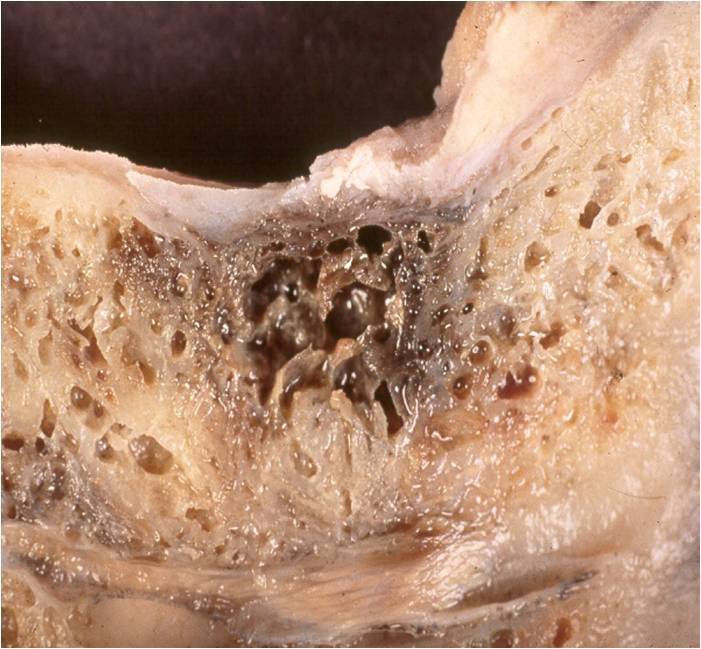Treatments
Ischemic Osteonecrosis (Cavitations) FDOJ/NICO

Cavitations are a chronic inflammation of the jawbone, leading to a pathological area of the maxillary bone that affects the whole body through a chronic and silent inflammatory reaction.
In this area, the bone is no longer compact and white, but instead consists of yellow inflammatory fat and dead bone cells. The lack of proper blood supply and the presence of necrotic tissue contribute to its development.

Risks of Systemic Osteonecrosis or Cavitations
Chronic Infection:
- Within these cavitations, pathogenic bacteria may persist, leading to chronic infections. Even if the patient does not always present visible symptoms, these infections can cause inflammation and compromise the immune system.
Nerve Pain:
- They can trigger neuralgias in the facial area. Nerve function may fail due to the connection with nerve tracts that lead to the brain.
Impact on Overall Health:
- Cavitations can release toxins and pathogens into the bloodstream, which has been associated with a variety of systemic health problems, including autoimmune diseases, cardiovascular disorders, and metabolic issues.
Other Associated Conditions:
- Chronic Fatigue Syndrome (CFS) · Low Energy (Burnout) · Cardiovascular Problems · Adrenal Fatigue · Weight Gain · Allergies and Asthma · Skin Disorders · Intestinal Issues · Autoimmune Diseases · Lyme Disease.
Contact us for more information about the treatments we offer for your overall health.
Cavitations develop in the context of a compromised immune system and are the result of wounds that do not heal properly after tooth extractions, dental buds, or the presence of foreign bodies in the bone. These cavitations largely reflect a deficiency of essential vitamins, minerals, and trace elements that are crucial during bone formation and remodeling.
Cavitations develop in the context of a compromised immune system and are the result of wounds that do not heal properly after tooth extractions, dental buds, or the presence of foreign bodies in the bone. These cavitations largely reflect a deficiency of essential vitamins, minerals, and trace elements that are crucial during bone formation and remodeling.
"It is estimated that 90% of surgical interventions related to wisdom teeth lead to cavitations or ischemic osteonecrosis."

